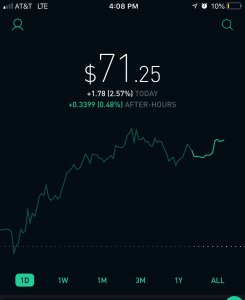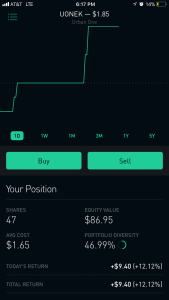- 18,297
- 1,007
- Joined
- Apr 1, 2009
How did you guys get started with this? I've been interested in finance for the last few years and I'm just as lost now as when I first started reading into it.
I have about one grand that I'm able to play around with, but still really hesitant to get started. Anyone have any literature for me to read over how to get started trading, or if there are already posted link me to it
I have about one grand that I'm able to play around with, but still really hesitant to get started. Anyone have any literature for me to read over how to get started trading, or if there are already posted link me to it








